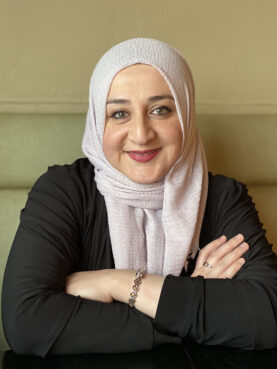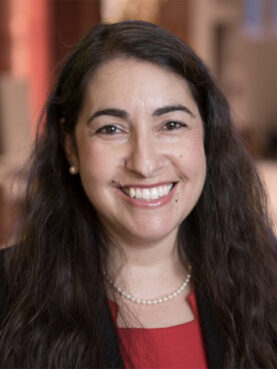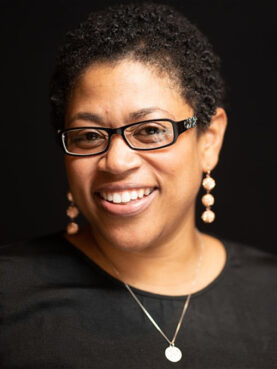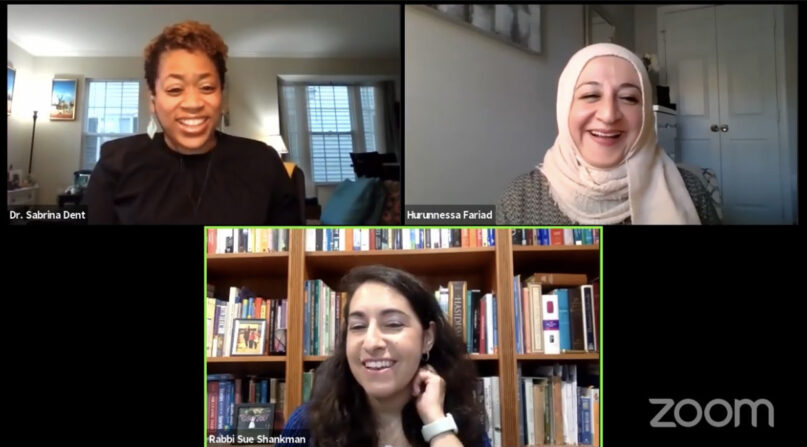(RNS) — Twice a month, the three women gather — a mosque outreach director, a religious freedom scholar and a longtime Reform rabbi — though the three have never met together in person.
They are the co-hosts of the “Sister Act” podcast, who have developed a virtual table focused on discussions of “life, faith and resilience.” With every episode, they take turns unmuting their computer mics and conversing on all manner of topics of interest to women, to people of faith and whoever else might tune in.
“The most important thing we wanted to point out was that we’re women in the faith space,’’ said the podcast’s founder, Hurunnessa Fariad. “We all can attest to this — all three of us — that being female faith leaders, we are not always given the stage. We are not always given the seat at the table.”
Fariad, 43, head of outreach for the All Dulles Area Muslim Society in Washington’s Virginia suburbs, started the podcast with the support of the American Muslim Institution, an organization that seeks to foster understanding between American Muslims and other U.S. citizens.
RELATED: International Women’s Day should celebrate invisible women, too — like my mother
She debuted the podcast in February 2020 with one other co-host, a Christian minister and NAACP official, but when the minister’s busy schedule forced her to quit a few months later, Fariad recruited Rabbi Susan Shankman. Then, in August, she recruited African American interfaith scholar Sabrina Dent.

Hurunnessa Fariad. Courtesy photo
The podcast airs biweekly on Facebook Live and is archived on platforms such as Apple Podcasts and Spotify.
The success of the trio, Fariad said, comes from “three women from three different faith backgrounds actually being friends” without “having this idea that we have to convert each other, or prove each other wrong based on faith scripture.”
Over its first year, the podcast has dealt with miscarriage and divorce, politics and race, and COVID-19 and motherhood — at one point each of them was parenting a 12-year-old child at the same time.
Dent, 45, grew up in the Pentecostal tradition and was licensed as an American Baptist minister but now defines herself as “spiritual.” She said she thought joining the podcast would be a good opportunity to model how women can step outside the circles they find most familiar.
“I like the fact that people can see that women from different racial, cultural and ethnic and religious backgrounds can come together and find common ground through our identities as women and talk about the issues that concern us,” said Dent, senior faith adviser at Americans United for Separation of Church and State. “We’re trying to break down these barriers.”
Shankman, 52, a rabbi at Washington Hebrew Congregation for 20 years, said sharing her perspectives about Judaism on the podcast has been as enlightening for her as it has the other members of the trio. “It allows me the opportunity to delve more deeply into what I believe to be able to explain it to somebody else,” she said.

Rabbi Susan Shankman. Courtesy photo
On the podcast’s Black History Month episode, the trio took turns talking about African Americans who inspire them.
Though well-known names like Vice President Kamala Harris and abolitionist Harriet Tubman came up, the co-hosts particularly highlighted pathbreaking figures with whom they had personal connections.
Dent mentioned Deloris Crenshaw Hargrow, a woman she attended church with growing up in Virginia Beach, Virginia, who, Dent learned, was a pioneering female African American mail carrier.
Shankman cited Dr. Odette Harris, her Dartmouth College classmate and now a Stanford University faculty member who is the nation’s first Black female tenured neurosurgery professor.
Fariad, marveling that her state’s legislators had voted that day to abolish capital punishment, pointed to Equal Justice Initiative founder Bryan Stevenson, who works to get wrongfully condemned people off death row.
The women are not all talk, however. “It can’t happen unless we speak to our elected officials,” said Fariad, about the capital punishment legislation. “It can’t happen if we’re quiet sitting at home, only worrying about ourselves and worrying about our own kind. That’s not why God put us on this earth.”

Sabrina Dent. Courtesy photo
Often the co-hosts capitalize on their own experience with issues as women of faith. In an October episode, timed to coincide with Domestic Violence Awareness Month, they were joined by two guest experts, one Jewish and another Muslim, to discuss how to help domestic violence victims stuck at home with abusive partners during the COVID-19 pandemic.
All three co-hosts had connections with the topic. Fariad mentioned how her imam speaks against domestic violence in sermons during Friday prayer services. Shankman is a board member of Jewish Women International’s clergy task force on domestic abuse.
As the episode concluded, Dent, who once worked in a New Jersey domestic violence shelter, told listeners: “I encourage you to remember not only the survivors that are navigating these difficult moments in COVID-19 but also the families who are remembering those who were taken too soon and violently because of domestic violence.
“Remember their names,” she said. “Remember their stories. Tell their stories. Be a listening ear for someone that needs help.”
On Monday (March 8), which is International Women’s Day, the co-hosts are scheduled to have a life coach as their guest for their first episode during Women’s History Month.
At times — and off-air — they have become personal coaches for each other, checking in, often by text, to see how each “sister” is doing or remind her to practice self-care.
In December, “Rabbi Sue” invited her co-hosts to her daughter’s virtual bat mitzvah. Dent watched online with her son of the same age.
“I really feel as though both Sabrina and Hurunnessa are sisters to me,” said Shankman, who says they all look forward to a post-pandemic, in-person get-together. “We so quickly gelled into this relationship where we can be honest and open to that. But it really is a sisterhood and a friendship.”
RELATED: Faith, medical leaders collaborate to get COVID-19 vaccine in arms of more people





